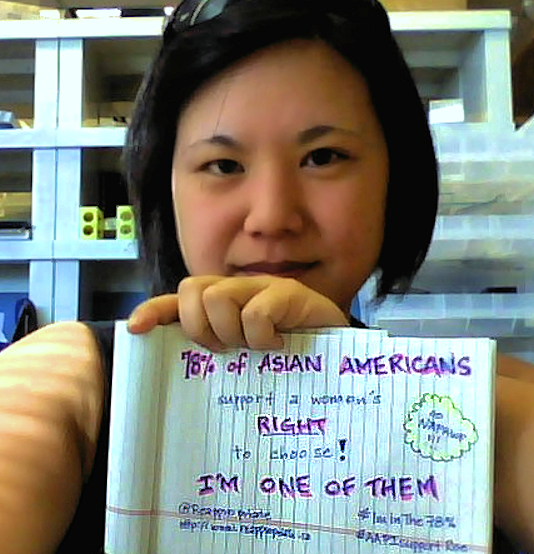Wednesday, January 22, 2014, marked the 41st anniversary of the landmark Roe v. Wade Supreme Court decision, which established a woman’s right to make her own reproductive choices — including abortion — under the Fourteenth Amendment.
Yet, over forty years later, abortion and other reproductive health policies that protect women’s rights continue to be under attack by the Republican Right. Yesterday’s anniversary of Roe was marked by anti-abortion rallies throughout the country, including thousands of pro-life activists who descended onto Washington D.C.’s National Mall. Meanwhile, the Republican Party is debating new guidelines under its national re-branding efforts that would encourage or even require pro-life party members to be more vocal in their anti-abortion stances. These developments predict escalating rhetoric over women’s reproductive health in the coming years; and this growing polarization is only likely to further hinder women’s access to reproductive freedom.
In some studies, Asian Americans women suffer among the highest rates of sexually transmitted diseases; in one, 13.5% of Asian American women in 2001 reported a sexually transmitted infection (STI) compared to 8.3% of White women, and were four times more likely than Asian American men to report an STI. Furthermore, in 2000, 35% of Asian American pregnancies ended in abortion, compared to only 18% of pregnancies among White women. These rates occur despite some studies showing relatively high condom use among Asian American youth; some scientists have argued that despite these findings, cultural stigmas against conversations on sexual topics hinder a comprehensive sexual education among young Asian Americans, leading to gaps in reproductive and sexual health knowledge that can result in high rates of STDs (some that often go unreported) and unplanned pregnancies.
Taken together, these data clearly indicate that reproductive health is a critical, if woefully under-discussed, concern for Asian American women. Furthermore, any effort to target public policies that promote reproductive health access will impact women in our community.
The conundrum of the pro-life advocate
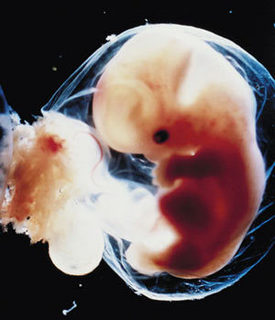
Pro-life advocates position themselves as staunch defenders of the unborn, righteous crusaders who at the extreme margins liken abortion to “murder” or “genocide”. Yet, one of the primary hypocrisies of the pro-life advocate is their apathy and disrespect towards quality of life, either for mother or for potential child. Having a child is not — and should never be mistaken as — a trivial decision; yet, for many pro-lifers out there, it is treated exactly as such, with little concern directed towards what happens to a child upon birth. In today’s America, many pro-lifers are also adamantly against government programs that support public education, healthcare access, and impoverished families. I look on in confusion at a pro-life position that seeks to protect human fetuses through emotional blackmail and, occasionally, violent domestic terrorism. I can’t help but conclude that, for some pro-life advocates, human life ceases to be worth protecting — or respecting — once it leaves the womb.
I think being a parent comes with it the responsibility to provide a nurturing and positive environment for a child until such time as the child becomes an adult. I think choosing to continue a pregnancy signals a commitment by the parent(s) that they have the time and the resources to be the best parent(s) they can possibly be for the next 18 years; by contrast, I believe requiring a woman to carry a fetus to term by reducing access to legal abortion, particularly with the knowledge that she is neither fully willing nor fully prepared to care for this child is not only irresponsible, it is unimaginably cruel to both mother and child.
That is not to say that parents who choose to give birth — even those who choose to do so with concerns over their economic future — are wrong. That’s not even to say that mothers who choose to give birth and then to give their child up for adoption are wrong.
Rather, I believe we should empower women — and their partners — to make their own informed reproductive choices. We should protect the right for parents to choose (or to not choose) parenthood, and to defend and support the informed, moral, and often incredibly difficult choice made by those who decide that they are simply not ready to be good parents and don’t want to inflict the irreversible consequences of their own possible unpreparedness onto their child.
How abortion access supports women’s rights
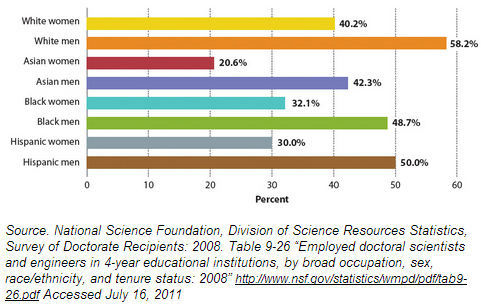
I am privileged that I have never been in a position to contemplate abortion for myself. These days, my boyfriend and I joke that had we gotten pregnant when we first got together, our little Junior would be entering high school and contemplating college right now.
This hypothetical humour skirts the reality: had I gotten pregnant 14 years ago, it’s unlikely I would be where I am today. As a freshman living on my own far from home and without my own income, a newborn child would have compromised my ability to obtain a bachelor’s degree from a prestigious Ivy League university. I would not have been able to support a five-year-old child on the meager wages that I earned in my post-college job as a lab technician. Later, I wouldn’t have had the freedom to quit my job and move across the country in pursuit of a graduate degree, and I certainly wouldn’t have been able to support a family on the subsistence wages paid to your typical doctoral candidate.
Had I had a child fourteen years ago, I don’t know who or where I’d be; but chances are pretty good I wouldn’t have a Ph.D.
For those who don’t have children, it’s shocking how costly — to a woman’s finances, to her time, and to her health, among other things — an unplanned pregnancy can be. Current estimates say that raising a child over the first 18 years of life costs the average family a quarter of a million dollars, not including the thousands of dollars for pre-natal healthcare as well as the lost income for the mother in the year surrounding birth. For many women, our optimally fertile timeframe — our twenties and early thirties — coincides with the precise years when our careers are also most precarious, and when the financial burden of pregnancy can be insurmountable. For those fresh out of college, the lack of financial stability seriously hinders a young woman’s capacity to provide a stable home for a child, particularly if she must do so on her own.
Beyond the financial costs, caring for a child can often limit the professional opportunities women can pursue. Young Americans now live in a country where families are spread across large geographic distances, where pre-K daycare costs almost as much as a private school tuition, where maternal leave lags behind that of most other developed countries, where institutions of higher education still lack any sort of basic infrastructure to provide support for young parents. The reality is that in America, raising a child is often incompatible with professional development particularly if you are a woman: unplanned or under-supported pregnancies contribute to women’s relatively high educational and professional drop-out rate — reflected in part by the clear achievement gap for women in such high-skill industries like STEM.
Removing reproductive choice only ensures widening of the existing achievement gap for women.
Shaming women for getting pregnant
Republicans — pro-life advocacy’s mainstream political allies — frequently counter these arguments with the charge that women have the choice to not get pregnant in the first place. Contraceptives are available for adult women, they argue, and everyone has the choice to not be sexually active.
This argument ignores the long-standing war Republicans have waged on every alternative available to women to avoid pregnancy: they have systematically eroded funding for comprehensive sex education in public schools, and have staged a full-scale war against non-profit family planning centers like Planned Parenthood that promote sexual education in the community at-large. Republicans have promoted a culture of sexual ignorance that leaves many women unaware of their reproductive health choices.
Even those who are educated don’t have full access to contraception. Condoms, The Pill, and other forms of routine contraception aren’t free or easily available, particularly to young women who are unemployed or underemployed. Plan B (also known as The Morning After Pill) doesn’t come cheap, and moreover teenagers under the age of 17 can’t obtain it on their own.
Access to abortion is being further hindered by Republicans and their legislative actions. In many states, Medicaid doesn’t cover abortion care. The National Asian Pacific American Women’s Forum (NAPAWF) notes that 1 in 5 Southeast Asian women, and 1 in 10 Asian American women, rely on Medicaid for their healthcare needs.
At virtually every stage, Republicans have thrown up roadblocks that limit access to contraception, and these roadblocks disproportionately affect women in poverty.
If you’re an adult woman with economic privilege, these obstacles to contraceptive access can be fairly easy to overcome. But if you’re a young poor woman who can’t afford routine contraception, your options dwindle until the only avenue Republicans would leave you in their ideal America is sexual abstinence. In this America, if you’re poor and you get pregnant, it’s your fault for being a slut.
Update: No sooner had I written this post than I went over to CNN to discover that Mike Huckabee had charmingly quipped at the RNC winter luncheon today that Democrats support healthcare coverage for contraception because they believe “[women] cannot control their libido or their reproductive system without the help of government”. Again, we have a Republican insinuating that unplanned pregnancies are a consequence of the shameful female libido, and that the whole problem would go away if women just kept our legs closed and knew our place.
The Muñoz Case
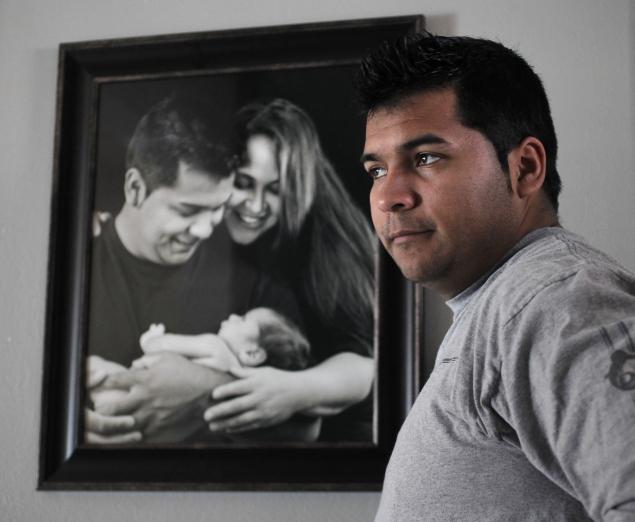
If we want further evidence of the role of women in the pro-life Republican’s ideal of America, we need look no further than the case of Marlise Muñoz.
A former paramedic, Mrs. Muñoz collapsed late last year while pregnant and was taken to hospital where she was pronounced brain-dead. Her fetus, 14 weeks old at the time, was deprived of oxygen for an indeterminate amount of time. Mrs. Muñoz’s husband stated that his wife — a medically-informed paramedic — had explicitly stated her wishes to not be kept alive on life-support in the event of brain-death. Her family wants to honour that wish.
However, because Mrs. Muñoz lives in Texas, hospital administrators have intervened preventing Mrs. Muñoz from being disconnected. They cite a state law, which they interpret as requiring life support to be maintained in this case until the fetus is viable at 24-26 weeks old. On Wednesday, the Muñoz family’s attorney released a statement indicating that it is developmentally abnormal that significantly compromises both its viability and its potential quality-of-life, including hydroencephalopathy, heart arrhythmia, and abnormal development of its lower extremities. Continues the statement:
The fetus, which was deprived of oxygen for “an indeterminate length of time, is gestating within a dead and deteriorating body as the horrified family looks on,” the attorneys said.
In this case, policies pushed forth by Texas Republicans have literally silenced Mrs. Muñoz; they have literally overruled her constitutional right. They are literally forcing her body to remain alive against her stated wishes in order to incubate a fetus that is so developmentally challenged due to the death of its mother that its own viability and quality-of-life is called into question.
Thanks to Texas Republicans, Mrs. Muñoz is not a woman — she has been transformed into an axlotl tank.
(Mr. Muñoz’s case appears before Texas lawmakers today.)
Asian Americans and Reproductive Choice
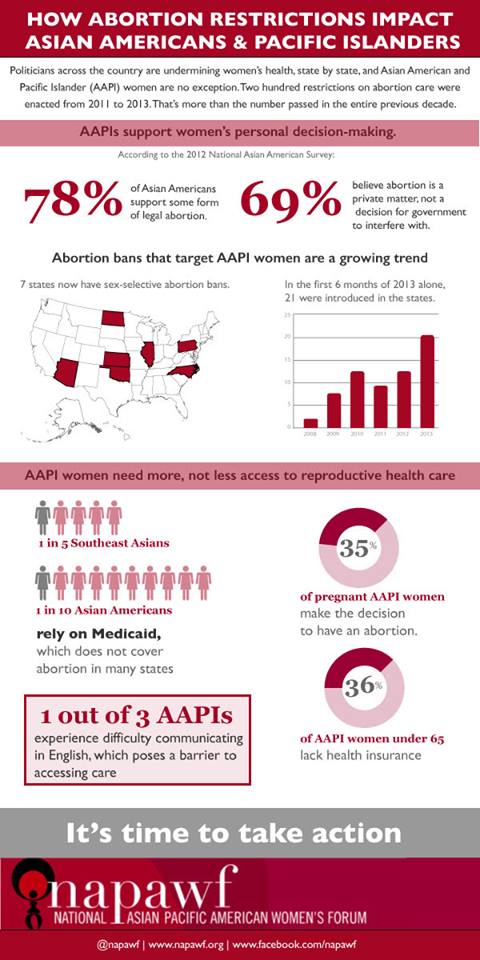
For Asian Americans, topics of sexuality and sexual health remain deeply stigmatized; this silence is exacerbated by internalization of the “model minority myth” which asserts that the “problem” of unplanned pregnancies just aren’t something that afflicts Asian American youth. Yet that ignorance over topics of sexuality blankets over the high abortion and STD rates in our community. Although pregnancy rates among Asian American youth are lower than among other racial groups, a large percentage of those pregnancies end in abortion. In 2007, New America Media reported that nearly 14,000 Asian American women visited Planned Parenthood to use their abortion services.
Moreover, overall sexual education is a constant obstacle within the Asian American community. Writes NAM:
Asian Americans are at risk for unintended pregnancies in part because their knowledge about sex remains pitifully low (which is curious, considering that Asian-American teens start having sex later than other American teens). Clifford Yee, youth program coordinator at Asian Health Services in Oakland, CA, has been asked whether douching with Mountain Dew prevents pregnancy. Some women who participated in the California Young Women’s Collaborative, a sexual health program for college-aged Asian-American women, were so enthused to finally learn about the subject that they hung speculums, a medical examination tool, on their dorm walls. A few were so inexperienced that they didn’t know what the withdrawal method was the program’s former research director Amy Lam says.
Unawareness about sexual health combines with risky contraception practices. The withdrawal method has been popular among Asian-American women, who tend to eschew both hormonal birth control and consistent condom use.
“Lack of information for both parents and youth, paired up with lack of knowledge about local clinical resources, leads to unintended pregnancy” among Asian-American women, Yee says. “They think they can have unprotected sex and not get pregnant. They don’t know that much about birth control and don’t know where to go to get it. It’s very typical.” And pregnancy is just one possible outcome: Among women of all racial and ethnic groups, Asian-American women have experienced the highest rate of increase for certain sexually transmitted diseases like gonorrhea and chlamydia.
The problem begins at home, according to Lam, who has researched sexual behavior in the Asian-American community. “When you come from a culture where your family doesn’t talk about sex, how can you talk to your partner about safe sex when you don’t have that role model?”
New American Media further cites a study reporting that one-third of Asian American families never discuss topics of pregnancy or sex, the lowest of all racial or ethnic groups studied. A second study showed that while 60% of Asian American women were taught abstinence by their parents, they learned nothing else about sexual health.
Against that backdrop, many Asian American women rely on public schools or local women’s health and sexual health clinics, like those run by Planned Parenthood, not just for their medical services but for sexual health education and emotional support. The Republican and pro-life war on these services run counter to the reproductive freedom of Asian American women; we need more access to these resources, not less. Rather than to condone shuttering of the doors of clinics like those managed by Planned Parenthood, Asian Americans need to recognize that our silence on topics of sexuality only compromise the reproductive health of Asian American women. Instead, we should be advocating to expand services, and enhance programs for Asian language access, as well as promoting topics of sexuality and pregnancy within our community.
I am pro-choice
I am not pro-choice because I am “pro-abortion”. For many women, abortion is not a “good choice”. For many women, choosing abortion is choosing the best of several very bad options; often at a time when women are also scared for their health and their economic future.
I am not pro-choice because I’ve ever had an abortion. I’m lucky to have never been forced to face that difficult decision in my life thus far.
I am pro-choice because I respect a woman’s right to make choices over her own body. I am pro-choice because I believe women possess the right to decide if and when they want to be a mother. I am pro-choice because I do not think the state has the right to intervene in those decisions by forcing a pregnancy to term against the wishes of a woman. I am pro-choice because the mere existence of that choice has comforted me in my life.
I am pro-choice because I believe our society has a responsibility to empower women, not silence us, as the state has done to Marlise Muñoz. I am pro-choice because we should never return to a time when an unwanted pregnancy led young women to dangerous and illegal back-alley operations. I am pro-choice because I do not believe women should live in fear of our own reproductive potential.
I earnestly hope that one day I have the privilege to have a child, and the honour to raise that child to adulthood. Only in the last three years have I even thought myself mentally, emotionally, and financially capable of being a half-way decent parent.
Until such time as I am lucky enough to be a mother, I am privileged that no government ever forced me to become a mother before I was ready to be the best mother I could be.
Act Now! Please support Planned Parenthood and other women’s clinics in your area. Please write to your local representatives in support of reproductive health and freedom. And, please support NAPAWF, a phenomenal Asian American women’s organization.
If you’re on social networking, NAPAWF encourages you to participate in their #AAPISupportRoe and #ImInThe78% campaign. Take a selfie in support of abortion access and reproductive health, and share it on NAPAWF’s Tumblr and with the world. More information here.
